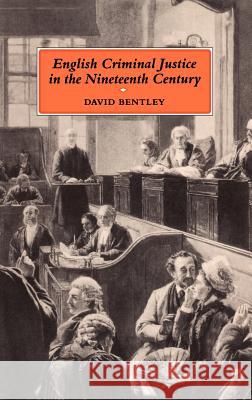English Criminal Justice in the 19th Century » książka
English Criminal Justice in the 19th Century
ISBN-13: 9781852851354 / Angielski / Twarda / 2003 / 336 str.
While it is easy to assume that the system of criminal justice in nineteenth-century England was not unlike the modern one, in many ways it was very different, particularly before the series of Victorian reforms that gradually codified a system dependent on judge-made precedent. In the first half of the century capital cases often tried almost summarily, with the accused not being adequately represented and without a system of appeal. There were also fundamental differences in procedure and in the rules of evidence, as indeed there were in attitudes towards crime and criminals. David Bentley has provided an account of the nineteenth-century criminal justice system as a whole, from the crimes committed and the classification of offences to the different courts and their procedure. He describes the stages of criminal prosecution -- committal, indictment, trial, verdict and punishment -- and the judges, lawyers and juries, highlighting significant changes in the rules of evidence during the century. He looks at the reform of the old system and assesses how far it was brought about by lawyers themselves and how far by external forces. Finally, he considers the fairness of the system, both as seen by contemporaries and in modern terms.











